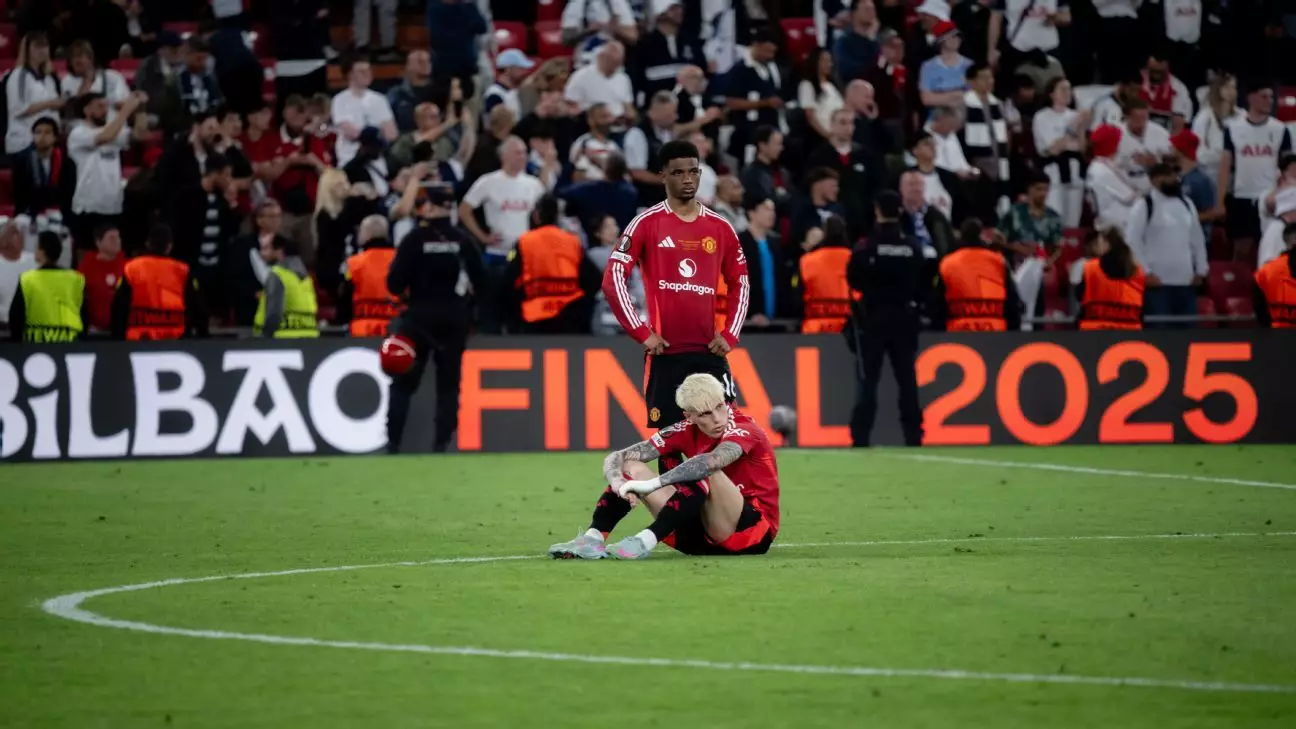In a recent press conference, Manchester United’s winger Amad Diallo expressed a heartfelt hope that his teammate Alejandro Garnacho will remain with the club amidst swirling rumors about the young Argentinian’s potential departure. The expectation is that Garnacho, who is only 20 years old, could move on if an enticing offer arises during the upcoming transfer window. While such scenarios are common in football, Diallo’s remarks add a layer of personal sentiment reflecting camaraderie within the United squad. It’s a reminder that football isn’t just about business; it’s also about relationships and teamwork.
Diallo emphasized the importance of having both talent and passion within the squad. “Alejandro is a really good player, and we need good players in the team,” he said. This statement not only highlights Garnacho’s skill set but encapsulates the broader philosophy of building a competitive and cohesive unit at Manchester United. The urgency behind Diallo’s comments brings a sense of unity to the forefront, illustrating the player’s recognition of Garnacho as an integral asset. It raises an interesting question: can any club expect to thrive when it allows talent to slip through its fingers due to neglect or financial incentives alone?
Impending Departures and Team Dynamics
Reports suggest that Garnacho’s representatives are gearing up to engage United, confirming the widespread speculation that his future is uncertain. In the modern football landscape, talented young players often find themselves pitted against the reality of transfer negotiations, often leading to an unsettling atmosphere both for the team and the fans. If Garnacho does leave, it may serve as a grave reminder of United’s struggles to not only retain top talent but to foster an environment where players feel valued and integral to the club’s mission.
Additionally, Garnacho missed a recent match against Aston Villa after expressing displeasure at being sidelined during the Europa League final—a significant moment in the team’s tumultuous season. It speaks volumes about the broader ramifications of individual emotions on team dynamics, particularly during challenging times. Leaving an important player feeling undervalued can fracture team morale, and United has faced its fair share of struggles this past season, finishing a disappointing 15th in the league.
Amorim’s Tough Task and the Weight of Expectations
Ruben Amorim, the head coach, finds himself in a precarious position managing not just player performance but also morale. Commenting on the team’s disappointing season, he noted how engaging with fans during this postseason tour is especially hard given the context of their struggles. “It is a moment that is hard for us,” he stated, indicating that both players and coaching staff are cogently aware of their place in the narrative and public perception of the club.
The reality that some players have opted out of traveling to participate in these games only emphasizes the disconnect that can occur during difficult times. Effective communication and emotional intelligence become crucial components for Amorim as he aims to rebuild a sense of purpose among fans and players. Furthermore, Amorim’s commitment to engage fans despite the setbacks signals a genuine intention to heal the rift that often forms in troubled times. His insistence on facing the fans, even when the team has performed poorly, should evoke respect from supporters and players alike.
A Call for Collective Resilience
In the wake of this tumultuous season filled with highs and lows, the narrative surrounding Manchester United has shifted focus not merely towards finding individual talent but rather towards building a collective resilience. Diallo’s heartfelt words about Garnacho can serve to rally support for the young player and emphasize the need for unity at the club. This isn’t merely a sport; it’s a collective of souls working towards a shared vision.
Long-term success for any football club hinges on weaving together individual talents into a cohesive unit. The continuing saga of Alejandro Garnacho is more than just a personal career decision; it’s emblematic of the broader challenges and opportunities that United face in fostering a club culture where players feel appreciated and motivated to stay. The call for unity speaks to the heart of football, reminding us that the journey of a team is only as strong as its collective spirit.

